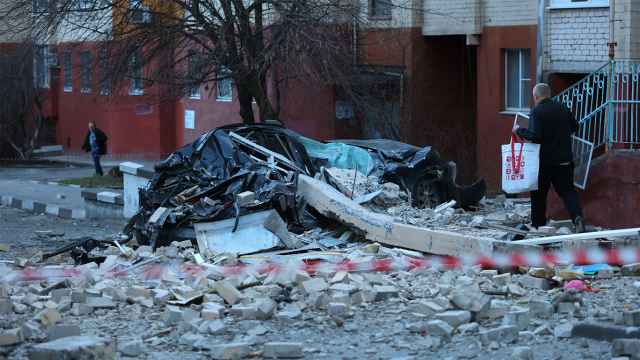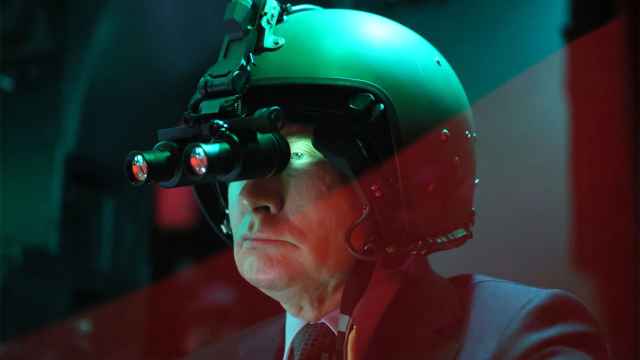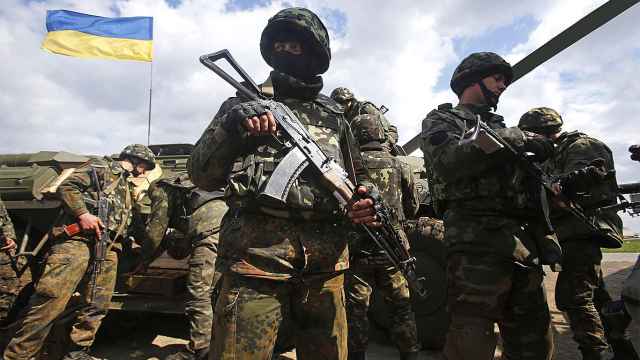Two weeks ago at the State Council meeting devoted to education and modernization, President Dmitry Medvedev advocated radical improvements in the vocational component of Russia’s education system. Is this at odds with his commitment to high-tech modernization?
No. Medvedev’s focus is correct. The key to modernization is knowledge that creates productivity through innovation. Russia needs an appropriate mix of higher and vocational education to fuel modernization in a globalizing world.
Human-capital investment is indispensable for economic productivity. Russia must place its wager simultaneously on both economic development and human-capital investment as an integrated strategy.
But both are now at risk from disproportionately emphasizing university education while leaving behind vocational skills. Russia faces an urgent challenge to correct this situation. The coming downturn in the working-age population leaves little room for error in educating the emerging generation to lead productive economic lives.
Russia’s university population has tripled in the last 15 years — from 2.5 million to 7.4 million students. This stunning development will certainly help Russia’s modernization. But it also signals real imbalance in human-capital strategy.
First, haste makes waste. The university student population grew from 20 percent of the cohort between 17 and 22 years of age to 60 percent in just 15 years. Our research shows that this was only one-fifth of the time that other countries have taken to attain the same percentage rise. The precipitate rate does not reflect a well-considered policy or studious motives. Instead, it reflects the desperate privations of transition, when teenagers sought any plausible route out of poverty. The jump in the number of higher educational institutions, including private universities, fed the rush. The breakneck velocity has diluted quality and increased costs, bribes and manifest unfairness.
Second, although human-capital investment starts at the pinnacle of the pyramid, it can’t stop there. University hypergrowth has starved attendance and investment in vocational education. The number of higher vocational graduates has remained net flat over the last decade. Many use vocational education as a “back door” to university, avoiding the unified state exam, and not as a means to learn new skills for a productive career. This is certainly not what policymakers had intended. Meanwhile, Russia’s more than 2,500 higher vocational institutions are a huge waste. These trends reflect a massive de facto redirection of human-capital investment toward the top and away from the skilled middle.
Third, a protracted university surge will reinforce the current, comfortable education strategy of “Do More Better.” But our research predicts unhappy consequences if this approach, based on peculiar past circumstances, persists unchanged.
Why might the university bias persist? Our survey research shows that two ideas underlie the extreme tilt toward universities. Culturally, Russian reverence for the arts and sciences has stimulated the notion that abstract conceptual thought is the most valuable component of human capital. From this perspective, innovation and creativity flow from “research,” and universities are the place where this primarily happens. Economically, universities look like the route to the good life.
This view, at least in its currently overstated form, is a myth. True believers in a naive “knowledge economy” concept pin all hopes for future prosperity and social well-being on technology as a liberator from current economic constraints. When this widespread dogma merges with an earthier desire for a more rewarding future, a social course is set. As Russian teenagers try to decide their educational future, policy rhetoric powerfully reinforces notions of outsized payoff from university attendance. Since students make their choices in a highly uncertain environment, striving for university admission often seems more rational than realistic views of their own abilities would suggest.
The myth persists because the best move for the next individual and family is apparently to imitate others, paying bribes for placement in an overenrolled system offering no guarantee of a good job. Meanwhile, in aggregate, this self-fulfilling prophecy becomes surprisingly resistant to contradictory evidence. Therefore, although army avoidance, corruption and pure confusion also play their part, the myth of knowledge, money and power in higher education are the main forces that shape behavior in Russia.
This behavior, which is driven by a romantic illusion, is destructive to policy. All those individual decisions accumulate in a social outcome that paradoxically undercuts economic development. Although academic experience is critical for growth, deployable knowledge requires the whole spectrum of intellectual resources. Conceptual knowledge is only a part of the mix.
Practical knowledge is indispensable. Such knowledge comes not from books but from experience and learning by doing. It is the knowledge of the skilled machinist who knows by an unusual sound that a metal-shaping machine is malfunctioning — and he knows how to fix it.
Scalable innovation balances both conceptual and practical knowledge to drive economic growth. Silicon Valley still beats the world at what it does by relying as much on skilled lab technicians and builders as upon Ph.D. engineers.
For an innovative, knowledge-intensive economy, the educational system must provide the basis from which a viable social system can grow. Practical knowledge is local and hard to coordinate at scale. Yet this social resource also renders countries much more resistant to rapid displacement by lower-wage economies. Today’s skilled workers pursue occupations across production, maintenance and services. In turn, the benefits they provide in nurturing a confident, stable working population span a broad front. The multiplier effect of skilled jobs in stimulating spending and bolstering local economies remains substantial. By helping to preserve the integrity of their communities, such workers provide enormously beneficial contributions to society.
Russia cannot continue on the present course. A huge brain on a stunted body is not a plausible model for socio-economic modernization.
For individuals, evidence is growing of underemployment in a “knowledge economy” — that is, when university graduates receive low wages, and when graduates in abstract-knowledge professions cannot find a job in their fields. For Russia, skilled workers who know how to manufacture are retiring and not replaced in high value-added sectors, including leading-edge industries like alternative energy and clean technologies.
Myths must yield to pragmatic truth. Not everyone can, or should, attend a university. This requires revitalizing vocational education just as much as supporting universities and institutes. For the next generation to make its economic contribution and to lead meaningful lives, Medvedev’s suggestion is a national imperative.
Michael Dalby and Steven Weber are professors at the Moscow School of Management Skolkovo.





